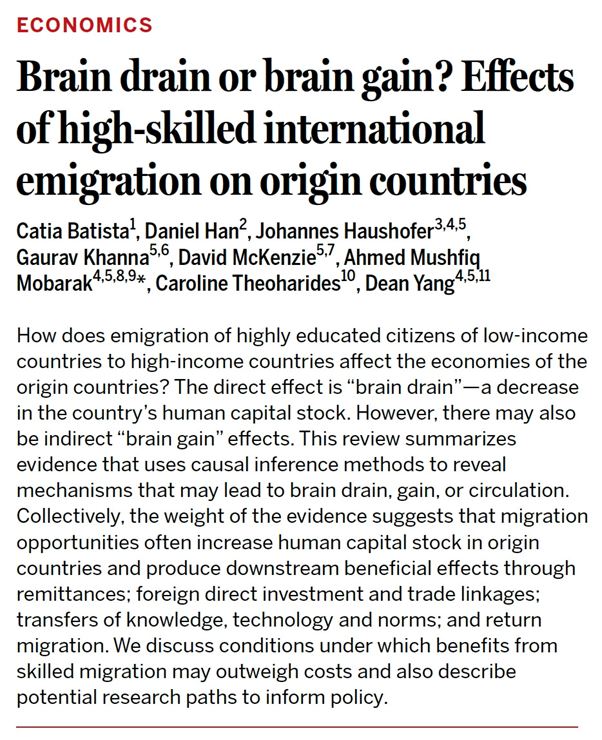
Johannes Wachs
@johannes_wachs
Researching social computing, crowds, and networks @uni_corvinus, @mtakti_iehas/@AnetiLabs.
ID: 146287709
https://johanneswachs.com/ 21-05-2010 02:15:07
1,1K Tweet
1,1K Followers
1,1K Following

New paper out in Science Magazine! Brain drain or brain gain? Effects of high-skilled international emigration on origin countries doi.org/10.1126/scienc…


New paper by Gergely Mónus and Laszlo Lorincz published in Cities: "Rural-urban flows determine internal migration structure across scales" 🔄 🔗Link to paper: sciencedirect.com/science/articl…




How much code now comes from AI? In new work with Simone Daniotti, Xiangnan Feng & Frank Neffke we estimate that by end-2024 about 30% of Python functions pushed by US devs on GitHub are AI- generated. Adoption is rapid but diffusion lags globally. How did we do it?




Just out in Silicon Continent: Europe's big disadvantage in generating clusters or colocating any industry (or a top University!) with large economies of scale: without ways to have gains flow back to all states, Europe cannot do comparative advantage! siliconcontinent.com/p/should-every…


Are we limiting AI by making it too human? James Evans (James Evans), Faculty Co-Director of the Complementary AI research initiative, shares how current AI models risk narrowing scientific exploration, and how we can build better AI, on the latest episode of Big Brains Podcast!

Interesting paper from Simone Daniotti, Johannes Wachs, Xiangnan Feng, and Frank Neffke. “By December 2024, AI wrote an estimated 30.1% of Python functions from U.S. contributors, versus 24.3% in Germany, 23.2% in France, 21.6% in India, 15.4% in Russia and 11.7% in China.

What is the geography of your academic impact? rankless.org/countries/chl Today Endre Mark Borza released new maps in Rankless. Explore the origin of citations for 3.8M+ scholars, 29k+ institutions, & 100s of countries. Try them & let us know what should be our next feature.



